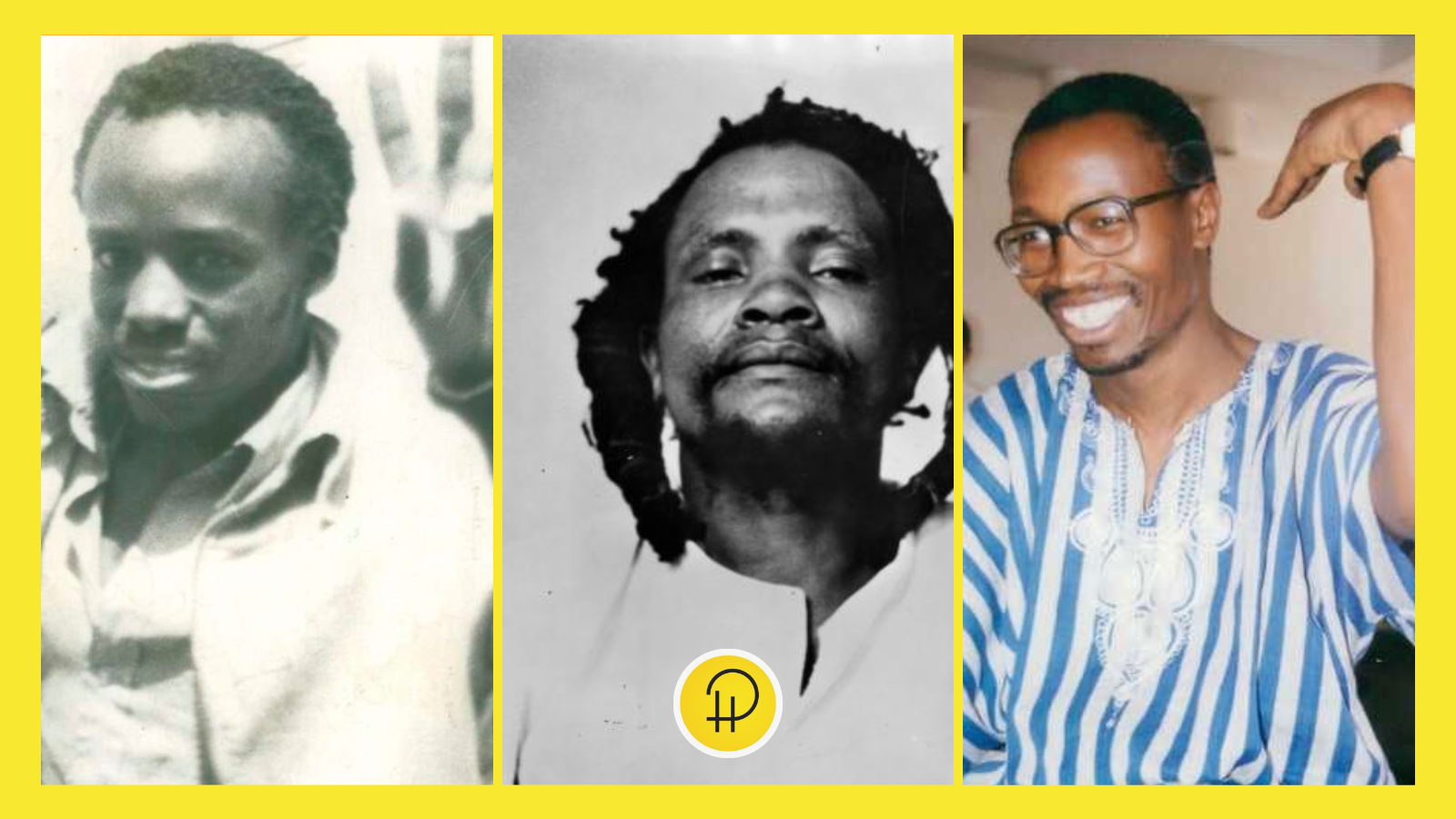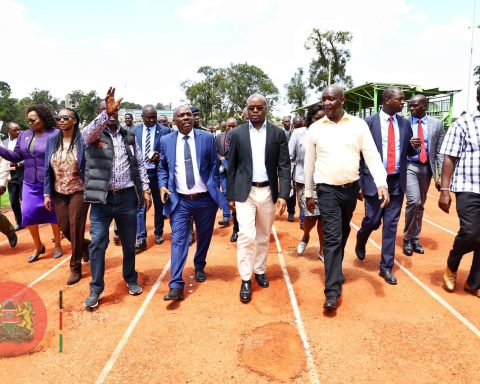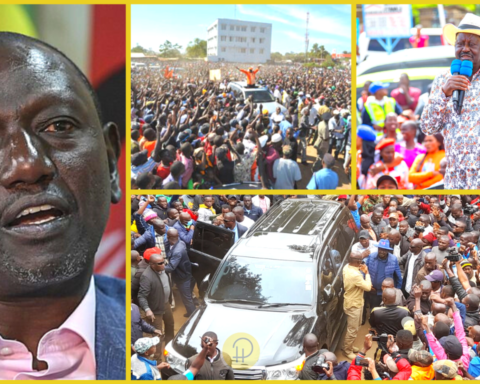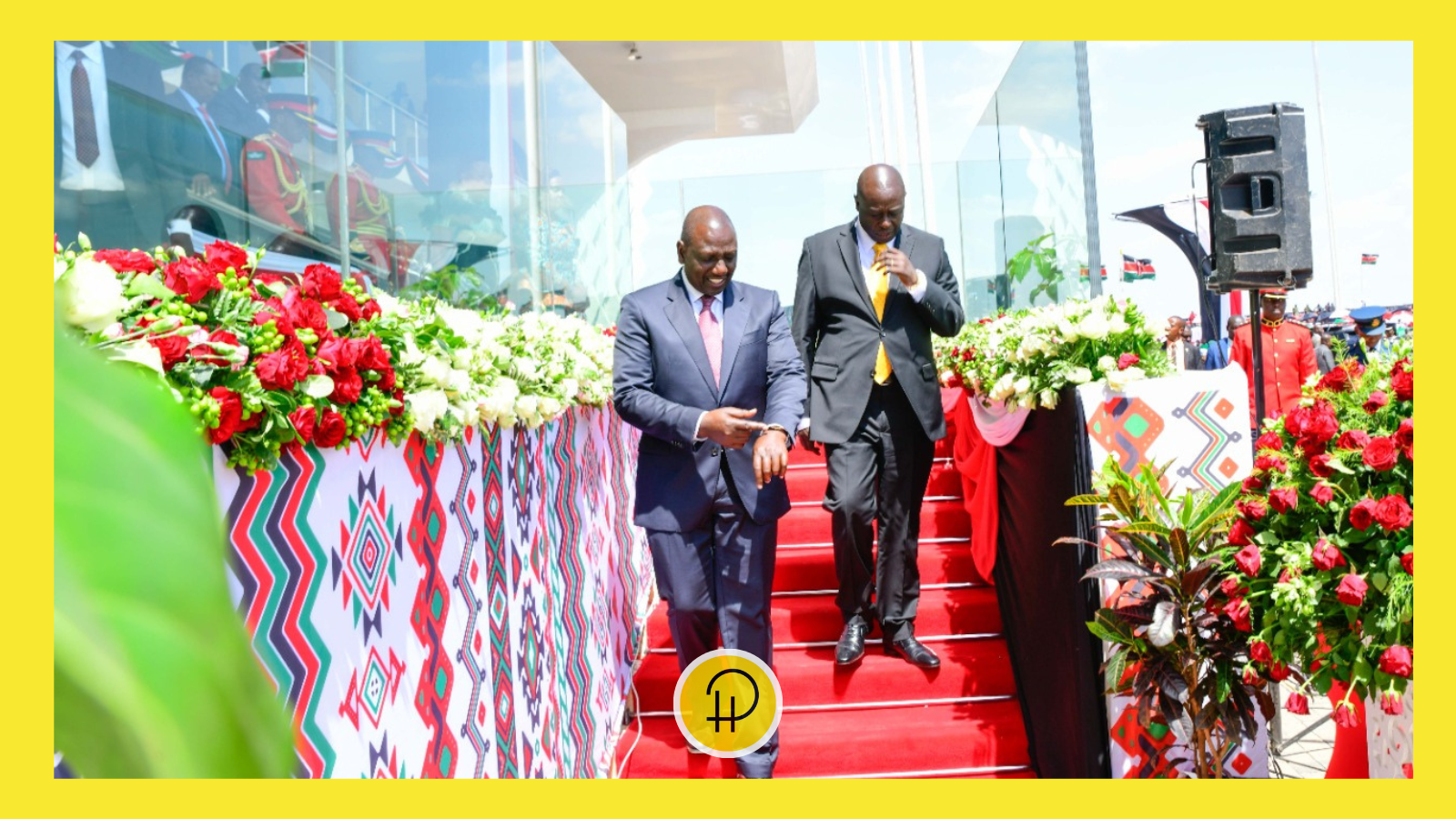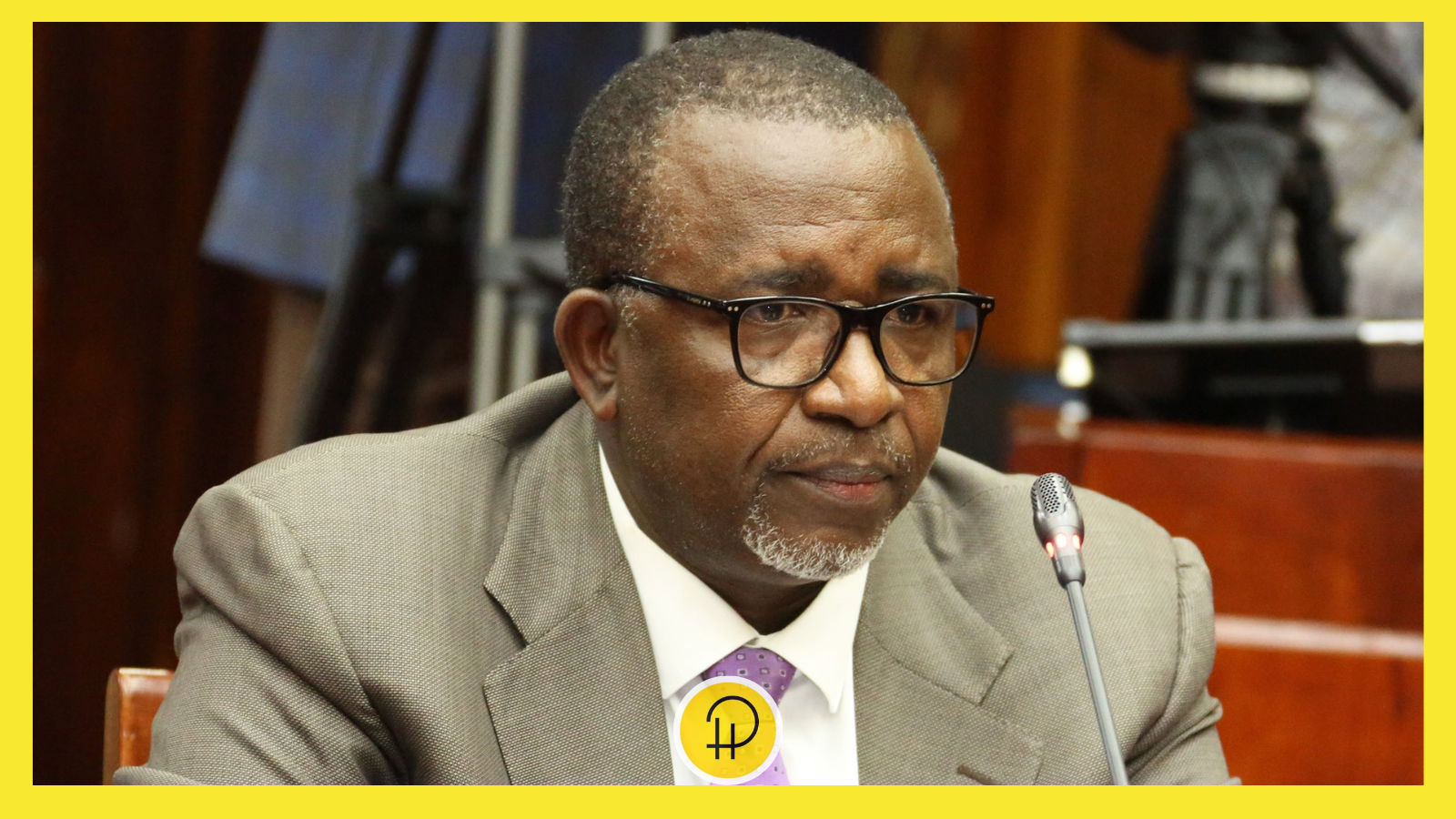I will start with Karimi Nduthu after whom my son born in 1997 is named.
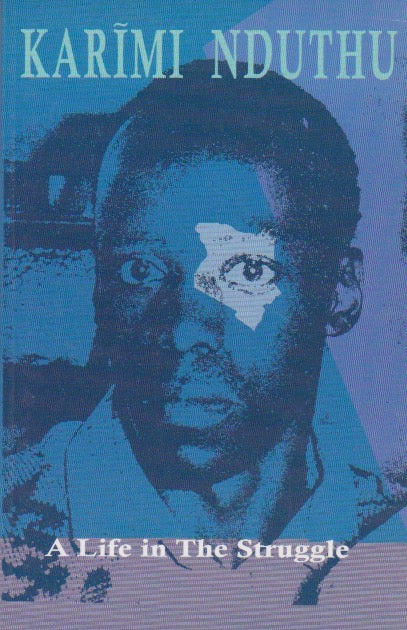
Karīmi Nduthu was brutally assassinated by agents of the Moi dictatorship on the 23rd of March 1996.
In a forward to a book written about that great soldier for the Kenyans people, Karīmi Nduthu is described as a revolutionary jewel, firmly embedded in the purest forms of the Kenyan tradition of patriotic resistance.
His very name denotes resistance against natural and human predators.

His actions place him in the anti-imperialist resistance tradition set in motion by Yusuf bin Hassan who courageously fought against the Portuguese in the 17th Century and by those like Waiyaki wa Hinga, Me Katilili, Koitalel, Kīmaathi, Pio Gama Pinto who fought against British imperialism.
It is the assimilation of these pure and selfless traditions for liberation and freedom that guided his actions as a Mwakenya activist, a political prisoner, and a human rights advocate. Karīmi said NO to the continued division of the African people into warring ethnicities. But he said YES to the unity of Kenyan people, their collective strength, and their will to struggle for a National Democratic Revolution as the only basis for a new era of unity, freedom, and justice.
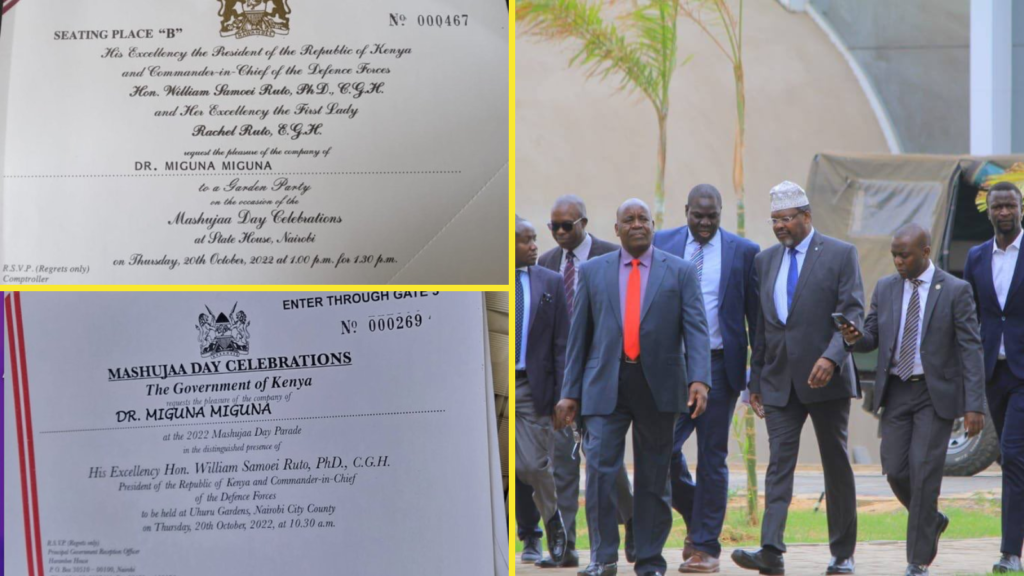
Karimi Nduthu must be turning in his grave today when he sees some of the people he fought side by side with like Miguna Miguna lap dancing for the very person who killed them in 1996 while running the YK 92. A gang of thugs working for Moi at the time to eliminate opponents of the dictatorship.
Karimi was a very patient guy so when he looks from his grave and sees some of his former comrades dancing for Ruto, he is going to take it very mildly and just be happy that now he knows the true character of some of those friends.
Karimi refused to leave Kenya even when those of us already out of the country were begging him to do so because we knew with the YK 92 terrorists, and the Moi Special Branch police, it was a matter of time before they killed him.
Karimi told us he will fight for his country inside Kenya until the day they kill him. The Moi government did exactly that on March 23, 1996. It was a very sad day for Kenya and for those fighting to free the country.
One of Karimi’s closest friends and fellow fighters to free Kenya was Kang’ethe Mungai a very unique human being. I was with Kang’ethe in Tanzania as a refugee in the late 1980’s. While we were at the UN office trying to get visas to travel abroad, Kang’ethe was swimming in the deep waters of the Indian Ocean on the beaches of Dar-es-Salaam.
We asked him what the heck he was doing instead of trying to get a visa. He told us he is practicing survival tactics because he wants to go back to Kenya and fight the dictatorship.

This is Mungai in his own words about his experiences with the Moi dictatorship.
Kang’ethe Mungai was a member of the outlawed group that fought the Daniel Moi administration and paid dearly. He narrates his ordeal:
“At university, we were concerned about the oppression that was taking place in the country. We decided to do something about it and started organizing with people outside the university.
We formed an organization called “Muungano wa Wazalendo wa Kuikomboa Kenya”, in short Mwakenya. Before that, there was an organization called the December 12 Movement.
By then, newspapers and airwaves — radio and television — were not free; they were controlled tightly by the Kanu regime.
As such, we went about to produce publications that were to speak freely about what was going on in the country, and one of these publications was Mpatanishi, which was for our own internal education.
Then there was another one for mass consumption, which was called Pambana. Pambana was something that we were writing and distributing all over the country so that people could know the truth about what was happening.
We created a network of sales all over the country and had a centre that was controlling it. The Moi repression started in earnest in the 1980s.
NYATI HOUSE
They started hunting us down and arresting people right, left, and centre. When these people were arrested, they were also tortured.
At that time, we did not know why they were doing it. We thought that they were doing it the ordinary way.
The well-known place for torture was Nyati House and, of course, police stations all over the country.
We did not know that there was a place like Nyayo House until much later.
After I was arrested, we were walking with the police on top of an overpass on the Naivasha-Nakuru Road; I decided that knowing what happens at Nyayo House, I would not go there.
So I decided that it is better to die than go through suffering in the Nyayo House chambers.
So I quickly disengaged from the two policemen who were carrying rifles and dashed to the side of the overpass and dived down to the road below.
I got badly injured and fell unconscious. I was still alive when the police came and collected me. They took me to Gilgil Police Station.
By then my body was swollen. They kept me there for the whole day. In the evening, they drove me to Nakuru Police Station and from there I was taken to a cell.”
So what exactly is Mashujaa day?
It is a day to commemorate the patriots of Kenya who have to do everything and even sacrificed their lives for a free Kenya.

October 20 holiday in Kenya used to be Kenyatta Day but Kenyan patriots fought very hard to change after defeating the one-party thuggery of Moi that the day should be used to commemorate the struggles, fights, and sacrifices of Kenyans who fought and even died to end one-party dictatorship and so many others who fought to free our country from colonial rule.
It was because of the grassroots movement to honour and respect real heroes of the Kenyan struggle for freedom that the Kenyan government was finally forced to put monuments for our real freedom fighters like Dedan Kimathi.

Many Kenyans know and appreciate the fact that without the relentless efforts of Field Marshal Dedan Kimathi achieving independence for Kenya was not possible.
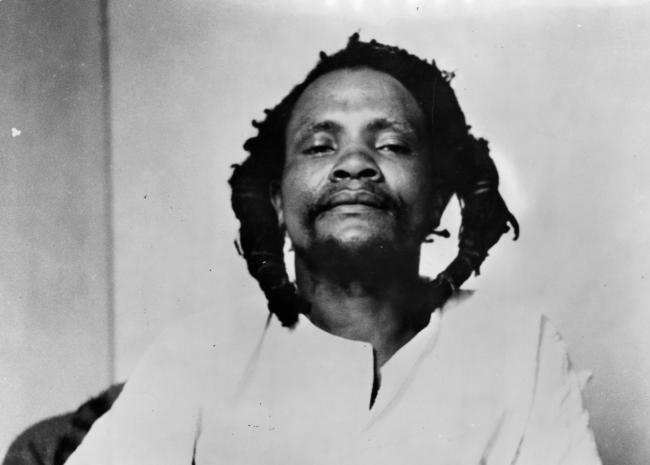
Then we have so many of our freedom fighters who Kenyans have been fighting so hard just to have them recognized for their contributions to our country.
One of those is Field Marshal Muthoni wa Kirima. She is in our country today. Maybe Ruto invited her to the Mashujaa day celebrations. I doubt it.

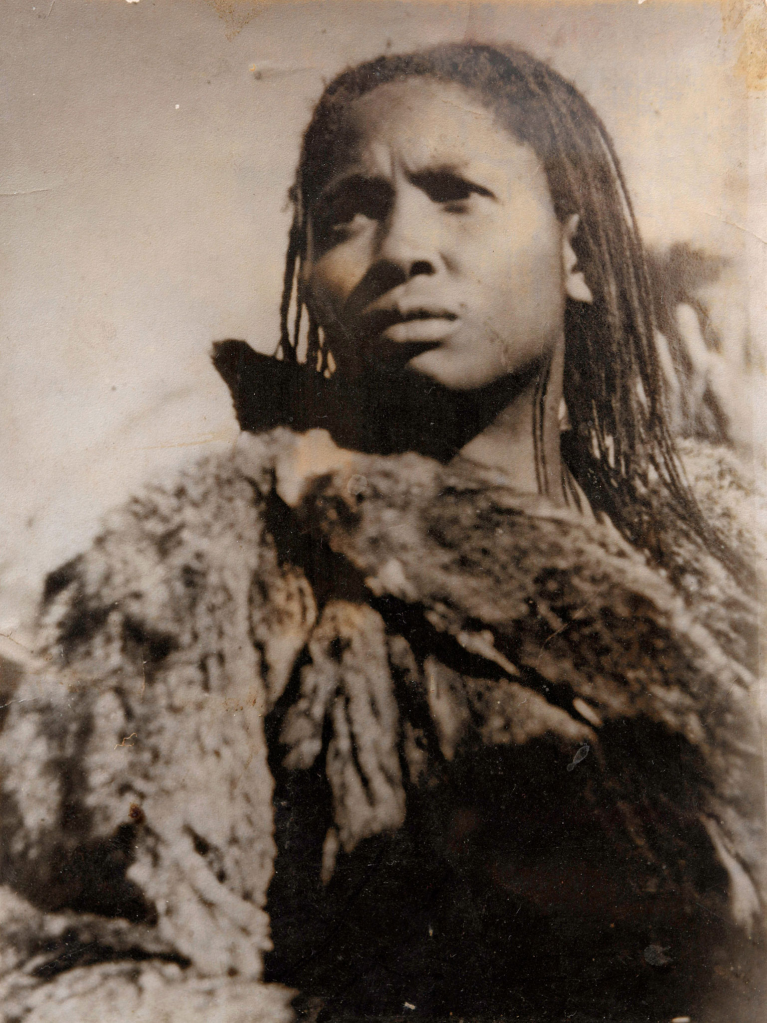
Last and even more important for me I want to remember this guy. Titus Adungosi who was my boss from 1981 to 1982 when he was the chairman of the Students Organization of Nairobi University (SONU) and I was the Secretary-General (SG) of the students union.
Did anybody bring his name up on this day meant for those who sacrificed their lives for our country? Maybe not but here he is a very quiet and silent hero for Kenyans.
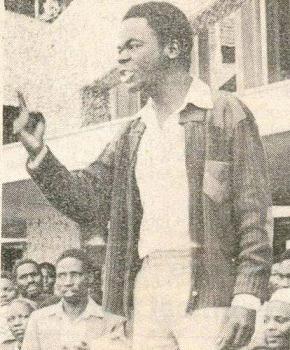
I was his deputy and Adungosi had one very inspiring leadership trait for the students union. Decisions and resolutions of SONU were made by the Students Representative Council (SRC) with 27 members of which Adungosi was the chair and I was the SG. I was a voting member of that council and many times we put our lives on the line.
Often in the SRC Chairman Adungosi voted against some resolutions but as soon as those resolutions were passed he supported them 100% and was ready to put his life on the line for the aspirations of Kenyans when it came to it in 1982.
Chairman Titus Adungosi (Tito) died in Naivasha Maximum Security prison on December 27, 1988, after spending 6 years in prison because he was a student leader in 1982 when there was a coup attempt against the Moi government and the students were presumed to have been happy with and supported the coup. The Moi government said he died from Stomach ulcer. They killed him. We know that.
So many battles and so many struggles.
Here is David Onyango Oloo. There is nobody in modern media who can even do half of what OO could do in radio stations, TVs and all media networks all over the world. The guy invented his own media and then he brings progressive people to get a platform for battle and progress.
Yes, it is Freedom Fighters Day for the likes of Onyango Oloo.
We are grateful for your efforts and achievements in the fight for a free Kenya OO.

For all of us and for many in the fight for a free democratic Kenya, the words of Okong’o Arara as he was being sentenced to jail for being a member of Mwakenya and other revolutionary groups says everything.
Here is what Maina wa Kinyatti one of our real Mashujaas at the baddest of times with Moi says about Harrison Okong’o Arara. Big guy Harrison was my schoolmate at Chianda Secondary School in Rarieda between 1974 to 1978.
He was a crazy football player who just went through everybody. Our headmaster at Chianda Mr. Obala Jakinda was a funny guy who always told us to do everything in the classroom and in sports. Obala was also a friend of my father Shem Adongo and he always told him to keep me under watch. I knew they were talking behind my back. And I was going to face them head-on. I had to do something good.
I was the captain of the Chianda hockey team and I asked Arara to come and try playing hockey. Field hockey was something new in the country. He became a star in our hockey team and we beat one of our biggest enemies, Sawagongo Secondary School in Gem to win the provincial championship.
Here is wa Kinyatti on Arara’s story.

Recalling memorable quotes of Kenya’s second liberation heroes
Harrison Okongo Orara was arrested in Nairobi on August 23, 1988.
He was falsely accused for being a member of Kenya Patriotic Front and Kenya Revolutionary Movement. He was also accused of having copies of “seditious publications.
He was convicted UNHEARD in November 1988.
Before being sentenced to 5 years in jail, the Judge asked Arara if he had anything to say;
Arara: Laughed and stated the brave words below:
‘’I don’t ask for any leniency from this court, for to do so is to recognise its right to judge me. I expect no mercy and ask for none, for if there is no mercy for millions of Kenyans; what will mercy to one individual serve?
The documents I am accused of possessing are truthful and honest. It is unfortunate that truth and justice have been sacrificed for selfish interests. Those apostles who have attempted to rescue justice have found themselves in detention, prison or exile.
I am proud and happy to join the company of such illustrious sons and daughters of the land.
He continued…..’A society that regards the cry for freedom, the cry for liberation, indeed the cry for emancipation, as being seditious; forfeits its place in the civilised community of nations.
The people of this nation are simply demanding their fundamental rights and freedoms.
They are simply demanding their rights to a decent living, right to education, right to proper medical care, in short, the right to be human beings.
If that is sedition, so be it. To sum up: you are delivering your judgment but it is not judgment according to law, but according to the system…But to you as a judge, you have betrayed your knowledge which you acquired…Let us be detained, imprisoned, hanged, slaughtered like sheep, but as a sacrifice for greater hopes.
The last thing I am leaving you with is that you are not contending against these simple bastards like Okong’o Arara, but you are contending against truth you will not prevail over it.
Adongo Ogony is a Human Rights Activist and a Writer who lives in Toronto, Canada

